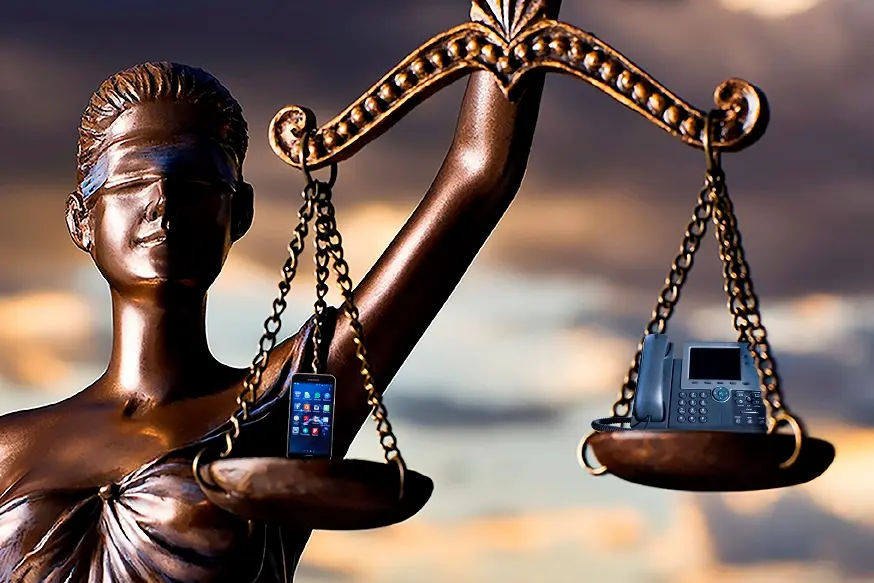Businesses that seek to enhance customer service or create training materials find call recording to be a valuable tool. Some organizations have a legal obligation to record calls for conducting business. However, it is crucial to comply with call recording laws and abide by the local regulations of all parties involved.
Knowing the laws in the jurisdiction of the caller and call recipient is essential, as these laws differ from country to country and even state to state. If you understand the importance of call recording and want to do so, simply comply with the legal requirements of the regulator. Here are the requirements of the law for phone recording for business.
Call Recording Laws
Call recording laws govern the permissibility of recording phone calls and the consent required from involved parties. These laws vary across countries and states. In the United States, call recording laws focus on consent.
- One-Party Consent. Under one-party consent, at least one participant in the call must provide consent to be recorded. If you are participating in the call and recording it, you meet the criteria for one-party consent. If a third party is not involved in the conversation and intends to record the call, they must request and obtain consent from at least one person in the conversation.
- Two-Party Consent. Two-party consent, also known as “all-party consent,” stipulates that all individuals on the call must grant permission to be recorded. If one participant in the call is recording it, they must inform the other participant before proceeding to satisfy the requirements for two-party consent.
Laws on Recording Conversations in Different Countries
Different countries have different legislation regarding recording calls and a business must comply with the requirements of the regulator both in its own country and in the one where the client is located. As for the implementation of call recording, it can be implemented even through the iPhone call recorder app. All you need to do is download iCall for iOS and run the call recorder. iCall can record any calls in good resolution. It can even be used as an iPhone phone recorder. The tool additionally protects call recordings if you need it. It has a premium version and a free trial mode.
USA
Certain states in the US require two-party consent for call recording, while others allow recording with one-party consent. The following states have two-party recording laws:
- California
- Connecticut
- Florida
- Illinois
- Maryland
- Massachusetts
- Michigan
- Montana
- Nevada
- New Hampshire
- Pennsylvania
- Washington
Even if your company operates in a state that allows one-party consent, you still need to inform both parties if you want to record calls made to a two-party consent state. The Federal Communications Commission (FCC) recognizes three accepted forms of notification:
- Notify orally or verbally before recording.
- Provide prior verbal or written notification to all parties involved in the conversation.
- Play an audible beep tone at regular intervals during the phone call.
Europe and UK
The General Data Protection Regulation (GDPR) broadly governs call recording laws within the European Union (EU). Introduced in 2018, this regulation imposes strict requirements on call recording, including obtaining consent and providing a reason for recording calls. Alongside the GDPR, each EU member state may have its own recording laws. It is crucial to ensure compliance with both EU and country-specific regulations when recording phone calls in these countries.
Following the UK’s departure from the EU on January 31, 2020, many EU regulations no longer apply to the UK. However, prior to Brexit, the UK implemented its own data protection regulation known as the UK-GDPR, which closely resembles the EU’s GDPR. When recording phone calls in the UK, it is important to adhere to the UK-GDPR as well as local laws such as the Data Protection Act 1998 and the Human Rights Act 1998.
Across Europe, call recording laws vary between countries, with some regions having specific exceptions. However, a majority of European countries require two-party consent for call recording.
Canada
According to section 183.1 of the Criminal Code of Canada, at least one party involved in the conversation must give consent to record calls in Canada. To ensure compliance, businesses are advised to play a recorded message stating, “We are recording this call for quality control purposes,” at the beginning of each call.

Australia
The federal Telecommunications (Interception and Access) Act of 1979, as well as State and Territory laws on listening devices, both apply to the monitoring or recording of telephone conversations. If an organization intends to record or monitor a call, it must inform the other party at the start of the conversation. This allows the other party to either end the call or request to be transferred to a different line where no monitoring or recording takes place.
Organizations may have various reasons for monitoring or recording conversations, such as:
- Safeguarding individuals involved in transactions with the organization.
- Creating a record in case of disputes regarding a transaction.
- Enhancing customer service.
India
Recording calls in India is not considered a criminal offense as there are no specific laws that mandate one-party or two-party consent. However, keep in mind that the utilization of recorded calls may be subject to privacy laws. It is recommended to seek consent as a general practice.
Conclusion
A company must not settle for just any mobile call recording system; rather, they must ensure that their chosen solution records calls legally and ethically. Responsibility for complying with all applicable requirements lies with the business. Numerous countries impose varying degrees of restrictions, while industry-specific legislation further governs call recording practices. Consequently, businesses operating across multiple countries may find themselves subject to numerous regulations, making it crucial to adhere to the most stringent rules to mitigate the risk of non-compliance.

